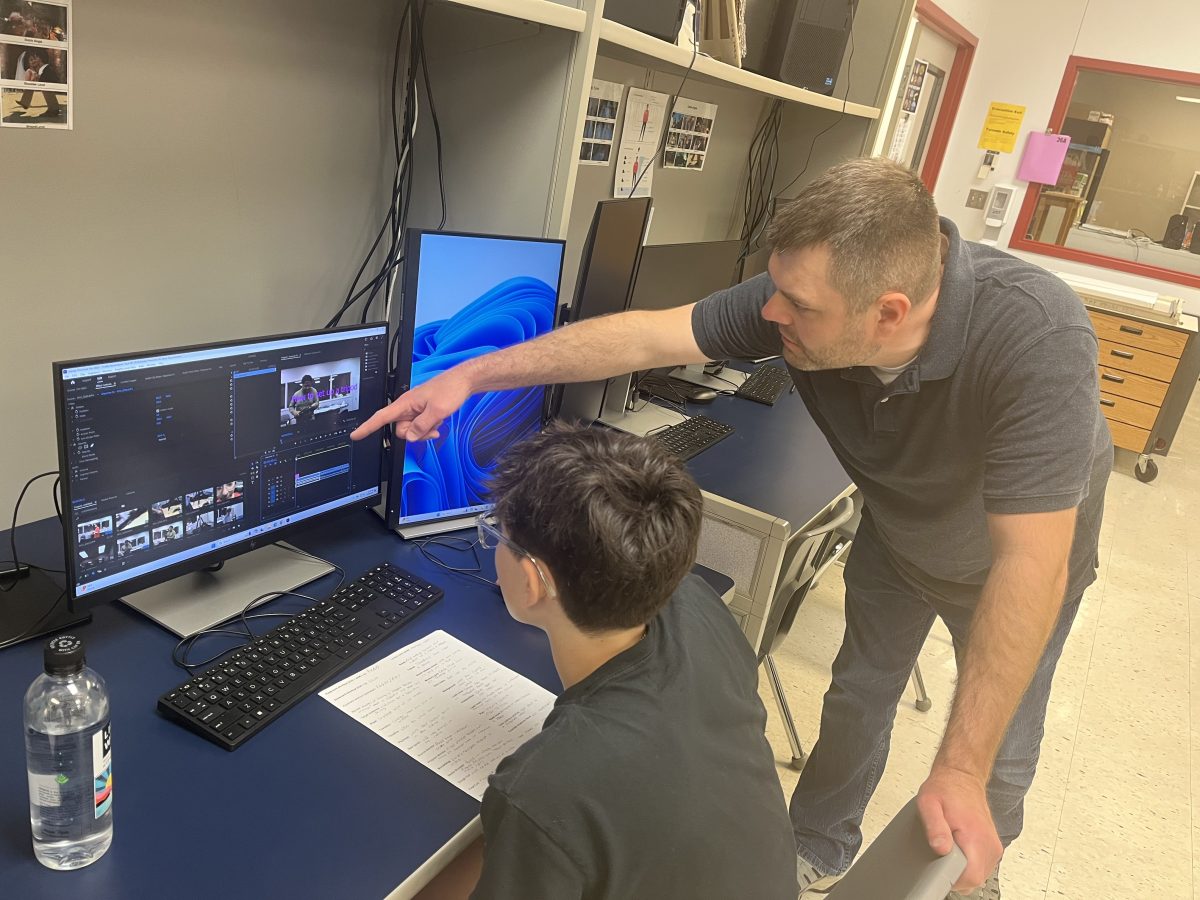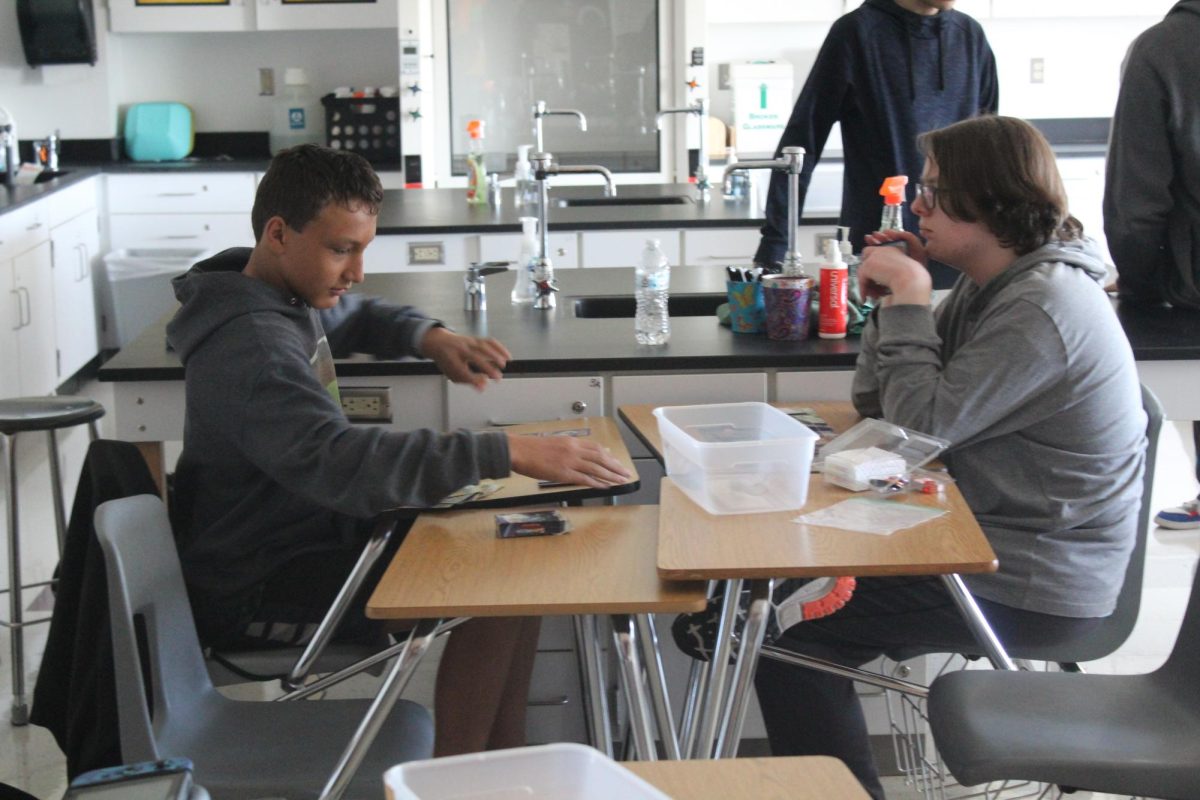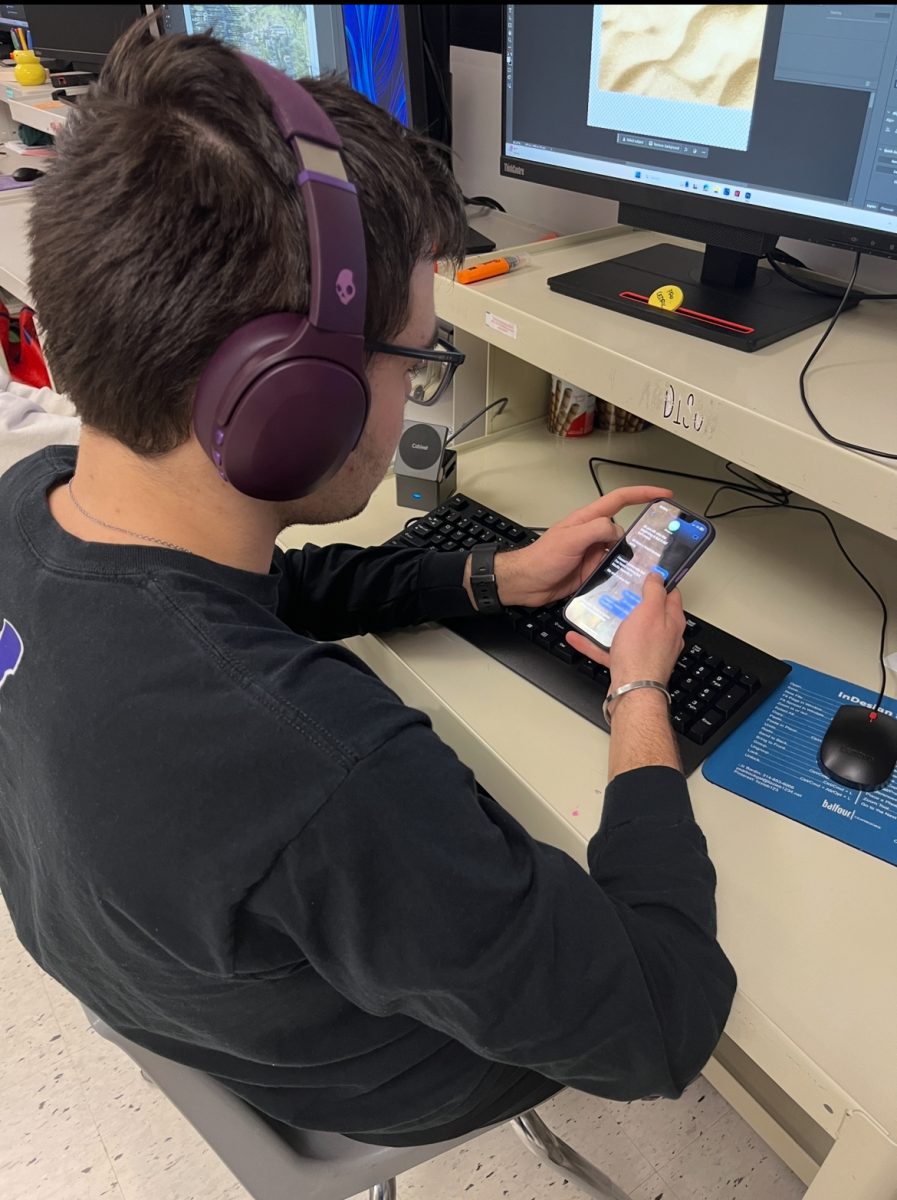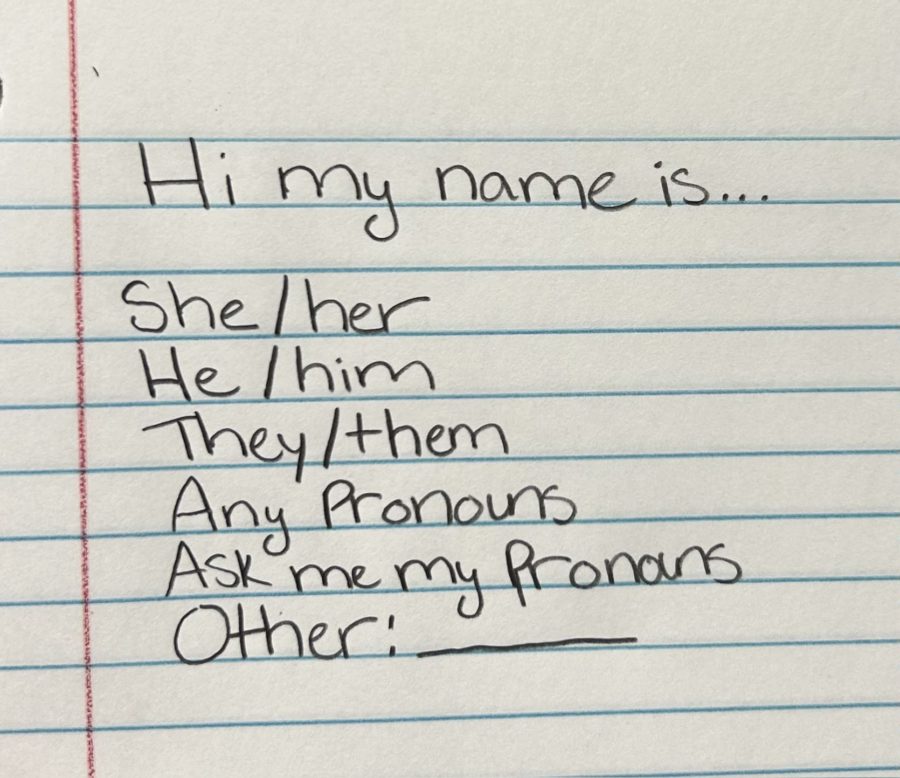Understanding Identity
The importance of preferred names and pronouns
When meeting new people, an important part of getting to know someone is understanding their preferred name and pronouns. What some people may not realize is that preferred names and pronouns are important to acknowledge for everyone. Education on the topic of identity is necessary in order for students of all orientations to thrive.
Using Chosen Names
Using a person’s chosen or preferred name is important to making an individual feel comfortable in their environment. A preferred or chosen name is any name a person may go by besides their legal one. People go by different names for a variety of reasons and should feel welcome to use a preferred name. If someone asks you to use a different name for them, respect their wishes and continue forward, instead of using one that may be “more familiar.” Only using a person’s chosen name in certain situations is not the way to do this, as it can tend to make someone feel you only respect their identity whenever they are present, according to studentaffairs.jhu.edu.
Using Pronouns
Using someone’s preferred pronouns is another important part of affirming identity. It is important to remember that pronouns do not necessarily always equal gender and gender is not obvious. Although a person may look what society portrays as cisgender—the gender someone was born as—it does not always mean they wish to be perceived that way. There are many different situations as to why a person may not choose or be able to transition. A person could not be in the safest environment to do so or are comfortable with their outer identity and do not feel the need to transition in order to present a certain way.
Whatever the case is, it is never okay to automatically assume somebody’s pronouns. You never know what someone could be feeling unless it’s communicated, so the safest option is not to guess, but rather to ask. If you are unable to ask what someone’s pronouns are, using gender neutral terms upon meeting is a safe option until told otherwise. If you accidentally misgender someone, a simple correction in a sentence is typically enough to let someone know it was unintentional. Over apologizing may seem polite, but it could make an individual feel more uncomfortable without realizing. Instead, correct yourself in the conversation and simply move on, according to emerson.edu.
Overall, protecting students by using their preferred names and pronouns is the way to a better and more welcoming environment. You would want to be treated with respect the same way these individuals do, so it is time to return the favor back. We are all humans of the same kind, and it can go a long way to help develop a safer community for people of LGBTQ.































